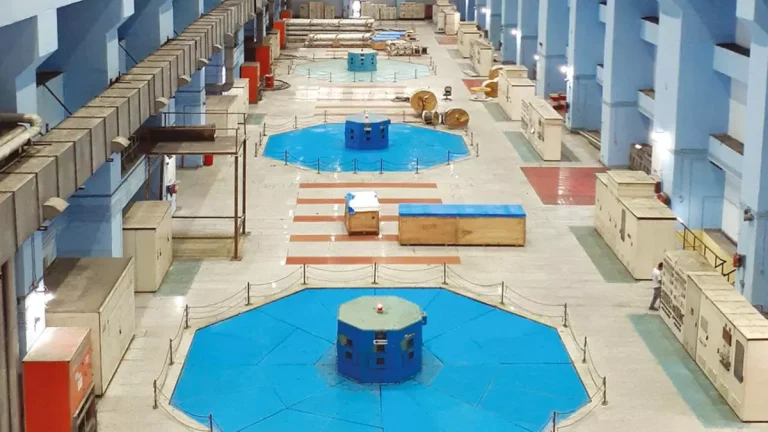The levelized cost of pumped storage (PSP) projects is around ₹4.7 per unit, compared to that of battery energy storage system (BESS) of around ₹6.6 per unit, which makes the former more preferable in terms of cost, CareEdge said Tuesday.
The rating agency said in a report that assuming the requirement is to provide 20 hours of renewable energy (RE) per day – a capacity utilization factor (CUF) requirement of more than 80 percent per year, which must be satisfied through a combination of variable RE (VRE) and storage component — a relative comparison between PSP and BESS was carried out.
“It was assumed that electricity from the ESS would be supplied for 6 hours per day and the ERVs would be used for the remaining 14 hours. The levelized cost of PSP stands at around Rs 4.7 per unit, while the levelized cost of BESS stands at around ₹ 6.6 per unit. So, at present, especially if one needs to provide storage for longer durations, PSP is preferable from a cost point of view,” he adds.
The agency said that assuming the requirement for 24-hour supply (RTC) of renewable energy, the landed cost of PSP is around ₹4.74 per unit, compared to ₹6.59 ₹ per unit for BESS.
On energy storage system (ESS) requirements, it forecasts that assuming four hours of storage per gigawatt (GW), India will need around 12 GW of storage capacity during the financial year 24, which is expected to reach around 70 GW by FY30.
Financial viability
However, the balance may shift if there is the introduction of voluntary financing (VGF) or other capital incentives on the BESS beyond the existing VGF, as well as a reduction in duties and taxes on batteries, the agency estimated.
Additionally, given their longer gestation, PSPs are likely to witness time and cost overruns. This, coupled with a reduction in battery prices, may tip the balance between the two technologies, he adds.
Senior Director of CareEdge Ratings, Sabyasachi Majumdar, highlighted that the introduction of several policy measures by the government, including the Renewable Power Purchase Obligation (RPO) and Energy Storage Obligation targets ( ESO), guidelines for promotion of PSPs and introduction of VGF for BESS, indicate the seriousness of the government in achieving 500 GW. non-fossil fuel production capacity by 2030 while ensuring grid stability.
“Investor interest in this segment also remains strong, with several large groups winning capacity at various storage auctions. However, from a financial sustainability perspective, the country has to go some distance as BESS, which is modular in nature, is not as cost-effective as PSPs and the latter have their inherent challenges including dependence on consideration of location, high gestation period, etc. « , he added.
PSP and BESS comparison
BESS requires less land and is independent of project site characteristics. It can also be used for distributed generation. Still, batteries face disposal challenges, while PSPs offer a sustainable and much cleaner alternative, CareEdge said.
PSPs, on the other hand, have a longer lifespan and are accepted worldwide as an established technology. It is also more competitive in terms of costs.
However, these projects usually witness escalations given the longer gestation periods and exposure to fluctuations in commodity prices. Furthermore, PSPs are also exposed to rehabilitation and resettlement challenges as they require contiguous plots of land to establish themselves, he adds.



